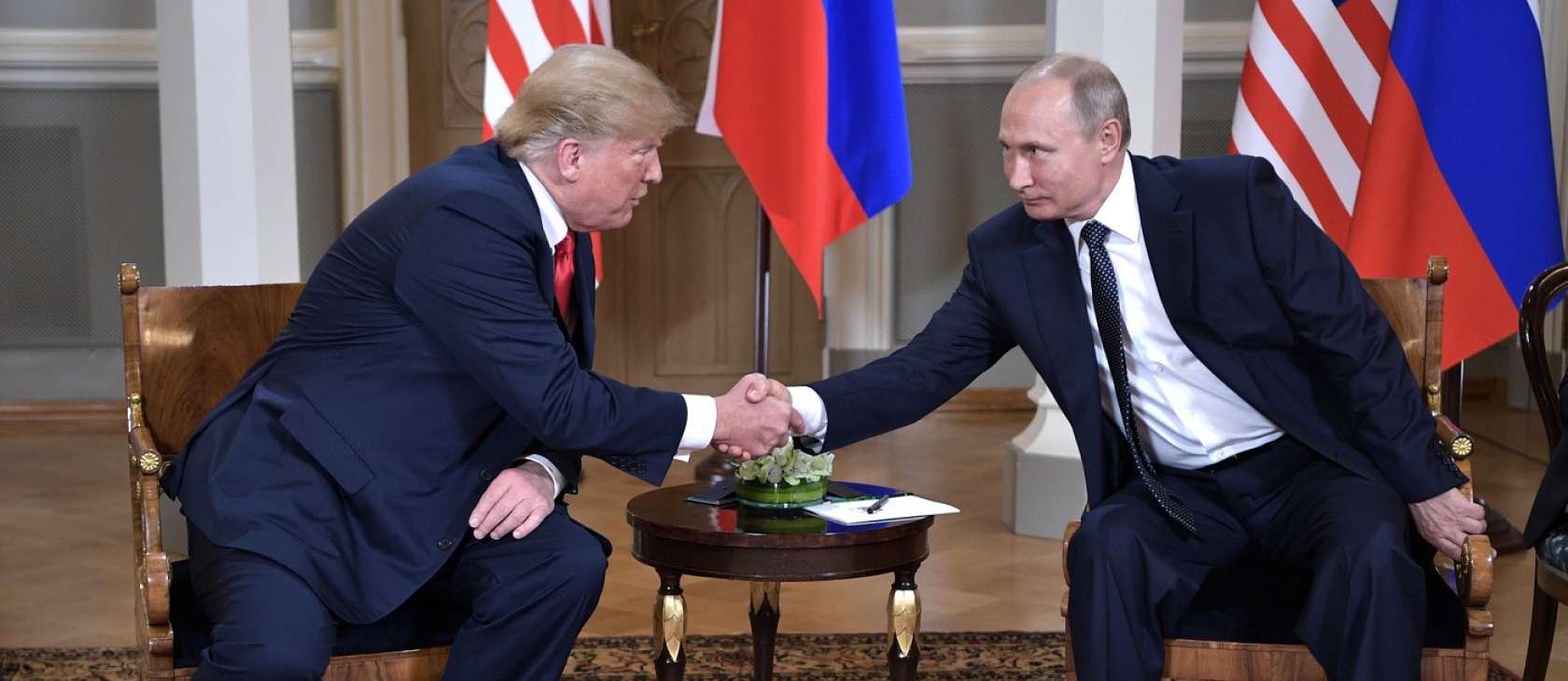As the world continues to discuss Donald Trump’s performance at the NATO summit and his meeting with Vladimir Putin, my fellow Romanians watched, too. From my distinctly Eastern European perspective, they were a disappointing series of missed opportunities.
Too often and too easily, President Trump seemed distracted by his domestic agenda, which prevented him from providing an inspiring vision for Western civilization. The Art of the Deal speaks at length about the importance of “thinking big” – and Eastern Europe needs a broad vision of ordered liberty.
Trump deserves credit for raising the issue of Angela Merkel's deal with Gazprom, as well as Germany's dependency on Russia for natural resources, at the 2018 NATO summit. During his press conference with Vladimir Putin, President Trump restated his critical view of the multi-billion-dollar Nord Stream 2 deal between Berlin and the Kremlin: “We’re going to be selling LNG [liquefied natural gas], and we’ll have to be competing with the pipeline, and I think will compete successfully.”
This bold economic message made the Russian president uneasy. But Trump should have doubled down by emphasizing that America's competitiveness in the field of energy has everything to do with the success of the free market and its incentives to make constant developments in science and technology.
Nearly 30 years after the collapse of the Berlin Wall, Donald Trump could have said that freedom is still a bright prospect for all the nations of the world – and that freedom is not real unless it can be measured in tangible political, economic, and religious terms. When it comes to all these very specific measurements, Russia has a dubious record.
American Christian missionaries in St. Petersburg are being harassed. Political dissidents are regularly persecuted. Freedom of expression is smothered.
This summer, in Brussels and Helsinki, Donald Trump could have spoken at greater length about faith, liberty, and national sovereignty.
Trump disappointed many Americans with his rhetoric, which went easier on Putin than his own FBI. Despite the flaws he sees in James Comey and his team, the secret service in America conducts no lethal operations against independent journalists, such as Anna Politkovskaya. Despite the extreme bias of agent Peter Strzok against the Republican candidate in 2016, no member of the opposition party was sentenced to jail, as happened to Alexei Navalny immediately after he announced his candidacy for mayor of Moscow. Whatever corruption Trump may (rightly) see in the Washington bureaucratic apparatus in general (or the Clinton family in particular), American political dynasties come and go – while Putin has been at the helm of the Russian government for nearly two decades.
In Russian business, as much as her politics, corruption is rampant. Both kinds of corruption have the same origin: The Russian economy ranks the 107th out of 180 freest in the 2018 Index of Economic Freedom. “Russia increasingly abuses individuals’ economic and property rights, thereby reducing the attractiveness of the country at home and its global competitiveness abroad,” write Heritage scholars James Robert and Ivan Benovic. “With time, these developments may have serious and long-lasting economic, political, and social consequences, including civil unrest and unpredictable political upheaval. Absent reforms to spur stronger and more widespread economic growth, Russians are likely to continue losing hope and faith in the future of their country.”
This is why Trump’s defense of faith, freedom, and free markets is so necessary. His predecessors shared none of his reticence in spreading their own vision. When traveling abroad, both Barack Obama and Joe Biden obsessively promoted their version of American values, which consisted of identity politics, the LGBT agenda, and a leftist economic and social agenda. Many of us expected a change of tone from President Trump and a more robust defense of individual freedom and human dignity.
Should Trump choose to fill this role, he will step into a philosophical and diplomatic void that spans the entire continent. Nowadays, no leader in Brussels can articulate a compelling design for the future of Europe. Brexit’s proponents cannot agree on their vision of the UK after leaving the EU. European Commission President Jean-Claude Juncker attended a ceremony honoring the 200th birthday of Karl Marx in Germany. The EU official charged with foreign affairs and security, Federica Mogherini, is the darling of Sergey Lavrov. French President Emmanuel Macron’s vision consists of lecturing African women to reproduce less.
It is precisely within this context that President Trump could have aimed at a more gracious and polite presence among his European allies in Brussels last week. A powerful leader fills the vacuum created by the cowardice of others. This is how Winston Churchill emerged in 1940 to provide millions of British, French, Belgian, Dutch, and even American citizens with a firm belief that freedom would conquer totalitarianism. None of this would have required President Trump to insult his Russian or European counterparts; a careful study of Ronald Reagan's diplomacy proves that one can make an equally powerful and affable critique.
Donald Trump is a born salesman, and he knows how to tell the entire world that America is open for business. However, Americans constitute less than five percent of the world’s population. Great American presidents of the last century knew how to inspire and defend other nations in their noble pursuit of freedom. As the son of a poor Scottish lady who came to New York in the early 1930s, Donald Trump could use his platform to explain the relationship between economic freedom and prosperity. This American president must articulate a more hopeful vision for the peoples living in Ukraine, Georgia, Armenia, Moldova, and other former Soviet countries. They all deserve a better future, and they can never realize their destiny in the absence of freedom. This summer, in Brussels and Helsinki, Donald Trump could have spoken at greater length about faith, liberty, and national sovereignty, the same way he did during his powerful address in Warsaw last year. What a missed opportunity.
(Photo credit: www.Kremlin.ru. This photo has been cropped. CC BY 4.0.)



